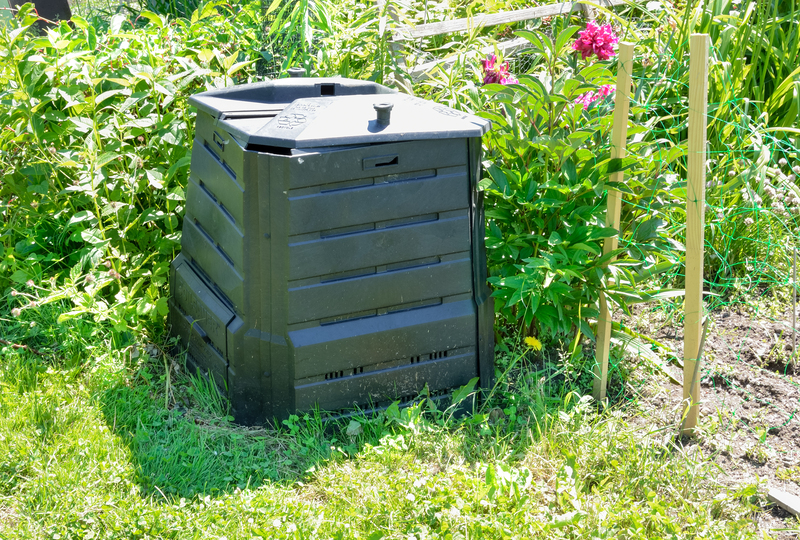Reduce Environmental Impact with Expert Waste Solutions
In today's rapidly changing world, reducing our environmental footprint is not just a choice but a necessity. With rising concerns about climate change and resource depletion, businesses and individuals alike are searching for sustainable waste solutions to minimize their impact. Here's how expert waste solutions can play an integral role in creating a sustainable future.
Understanding the Importance of Waste Management
Effective waste management is crucial in curtailing the negative effects that waste can have on the environment. Proper disposal and processing of various waste materials can significantly reduce pollution and preserve natural resources. Let's explore how expert waste solutions improve the sustainability of our environment.
The Environmental Impact of Improper Waste Disposal
- Land Pollution: Dumping waste indiscriminately contributes to land pollution, affecting soil quality and wildlife habitats.
- Water Contamination: Improper disposal can lead to hazardous substances leaching into water bodies, affecting aquatic life and human health.
- Air Pollution: Incineration of waste releases toxic gases that contribute to air pollution and respiratory issues in humans and animals.
Expert Waste Solutions: A Pathway to Sustainability
By leveraging expert waste management solutions, businesses and communities can significantly reduce their carbon footprint. Here's how these solutions contribute to a healthier planet:

Key Components of Expert Waste Solutions
Waste management experts offer tailored solutions that make a significant difference in reducing environmental impact. These components include:
Comprehensive Waste Audits
Before implementing waste management strategies, conducting thorough waste audits is essential. This process involves:
- Identifying waste types: Understanding the types and quantities of waste generated is crucial for devising effective solutions.
- Analyzing processes: Evaluating existing waste management processes helps in identifying areas for improvement.
- Setting targets: With insights from audits, businesses can set achievable goals for waste reduction and recycling.
Recycling and Resource Recovery
Recycling is a cornerstone of sustainable waste management. By transforming waste materials into reusable resources, we can:
- Conserve natural resources: Recycling reduces the need for raw materials, preserving our environment.
- Reduce landfill usage: Diverting waste from landfills minimizes environmental degradation and saves space.
- Create economic opportunities: The recycling industry generates jobs and contributes to economic growth.
Innovative Composting Techniques
Composting is another effective waste solution, particularly for organic waste. With modern composting technologies, businesses can:
- Produce nutrient-rich soil: Compost enhances soil quality and supports sustainable agriculture.
- Decrease methane emissions: Decomposing organic waste in landfills releases methane, a potent greenhouse gas; composting mitigates these emissions.
Embracing Circular Economy Principles
The circular economy model emphasizes the importance of designing out waste and keeping resources in use for as long as possible. By adopting such principles, businesses can:
- Design sustainable products: Products designed with their entire lifecycle in mind reduce waste generation.
- Encourage reusability: Emphasizing reusability helps in significantly cutting down on the need for new materials.
- Enhance resource efficiency: Efficient use of resources reduces the demand for new raw materials, aiding environmental preservation.
The Role of Technology in Waste Management
Advanced technology plays a crucial role in optimizing waste management processes. Cutting-edge solutions include:
Smart Waste Bins
Utilizing IoT-enabled smart bins helps in maintaining collection efficiency by:
- Monitoring bin levels: Smart sensors provide real-time data, enabling timely waste collection services.
- Reducing overflow: Efficient management prevents spillage and maintains a cleaner environment.
Artificial Intelligence and Machine Learning
AI and machine learning technologies enhance waste sorting processes by:
- Automating sorting: AI-driven systems are capable of accurately sorting waste, increasing recycling rates.
- Predictive analytics: Machine learning models help forecast waste generation and optimize waste management logistics.

Steps Towards Implementing Expert Waste Solutions
Implementing waste solutions requires a strategic approach. Here are actionable steps to make a tangible difference:
Engage a Professional Waste Management Company
Partnering with experienced waste management firms ensures access to the latest technologies and industry expertise. These collaborations can lead to tailored strategies that align with your goals.
Employee Training and Awareness
Educating employees on sustainable practices ensures the successful implementation of waste solutions. Training programs should focus on:
- Recycling best practices: Employees should be encouraged to segregate waste correctly at the source.
- Sustainability goals: Clearly communicate the organization's sustainability targets and how they can be achieved.
Regular Monitoring and Reporting
Establishing a framework for monitoring and reporting progress is essential. Regular assessments ensure that waste management strategies remain effective and aligned with environmental objectives.
Conclusion: Innovating for a Greener World
Reducing environmental impact is a collective responsibility that requires conscious efforts from individuals, businesses, and communities alike. By adopting expert waste solutions, we can create sustainable systems that not only manage waste efficiently but also contribute to a healthier planet. Embrace the potential of these strategies to foster a circular economy, employ technology in waste management, and collaborate with experts to make a positive impact on the world.